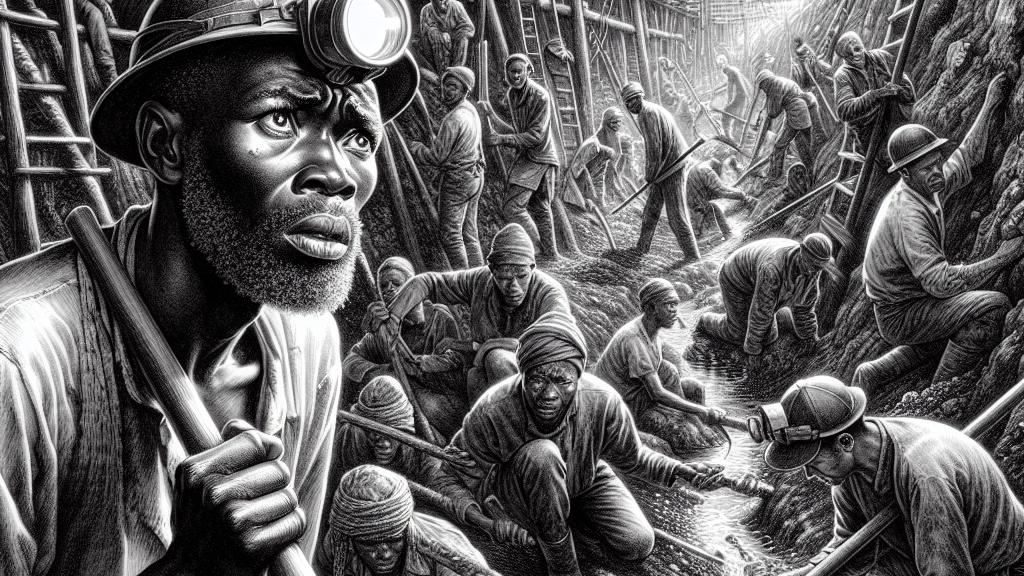The Underworld of Illegal Mining in South Africa
Overview
- Zama zamaz symbolize a desperate response to South Africa's harsh economic landscape, driving many into the perilous world of illegal mining.
- Government crackdowns clash with the survival instincts of miners, highlighting a struggle between law enforcement and basic human needs.
- For numerous individuals, the potential rewards of illegal mining eclipse the inherent dangers, pushing them to risk everything for financial stability.

The Emergence of Zama Zamas
In South Africa's mining heartland, particularly in Stilfontein, the illegal mining scene revolves around the practice of zama zama, meaning 'those who try again.' This term mirrors the determination of miners like Ndumiso, who turned to illegal digging after losing his legitimate job during the industry’s downturn. Picture this: a father, retrenched and desperate, joining a community of hundreds in abandoned mines, facing the unknown in search of gold. These miners work under harrowing conditions, often risking their lives for the chance to earn a significant income, one that surpasses what they could have earned legally. Many remain underground for extended periods, relying on risky supply lines to sustain their existence. Each person's journey showcases the hopelessness bred from a staggering unemployment rate and limited prospects for legal work.
Government Response: A Double-Edged Sword
However, the South African government's response to illegal mining is both stern and complex. In an effort to eradicate these operations, authorities have implemented aggressive measures that include cutting off essential supplies. For instance, during a recent crackdown, police efforts to block food deliveries left miners struggling to survive in the dark depths of the mines. Can you imagine the anxiety of loved ones above ground, waiting for news of family members trapped beneath? This tension illustrates a profound disconnect between enforcement actions and the grim realities faced by those below. As community advocates push for humane treatment and basic rights for miners, legal battles unfold, raising urgent questions about the ethical implications of such government strategies. This clash between enforcing the law and recognizing the humanity of the miners emphasizes the complexity of remedying a crisis born from dire economic conditions.
Economic Incentives: Risks, Rewards, and Reform
Despite the dangers tied to illegal mining, the financial incentives can't be overlooked. For many, like Ndumiso, the profits from illegal gold mining significantly exceed previous legal employment opportunities. Imagine a miner finding gold worth thousands of rands, allowing him to support his family more effectively than any legal job ever could! Nevertheless, this precarious underground economy is fraught with hazards, not only from physical dangers but also turf wars among rival groups battling for control of lucrative areas. Yet, this challenging environment has sparked debates about the legitimacy of allowing small-scale mining under regulation. Potentially, if the government identified ways to safely integrate this underground economy into a formal system, it could alleviate some societal issues and help foster economic growth. Thus, the story of zama zamas mirrors not only their fight for survival but also ignites discussions about pathways toward sustainable economic reforms that could bridge gaps between legality and livelihood.

Loading...